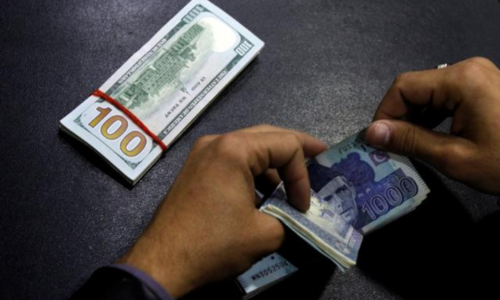KARACHI: Growing pressure in the external sector is likely to result in a current account deficit of $12 billion to $17bn for 2021-22, veteran bureaucrat and former aide to the premier Dr Waqar Masood Khan said on Wednesday.
Addressing a book launch ceremony at the Institute of Business Administration (IBA), Dr Khan said the country should expect major changes in interest rate, exchange rate, taxation and energy policies as soon as the International Monetary Fund (IMF) programme is revived.
“Where will the exchange rate go if it’s left completely independent? What’s the point in building foreign exchange reserves if they are not stabilising the exchange rate?” he said while noting that the rate is at an all-time high of almost Rs170 although the reserves have increased to $20bn from $15bn in May when the parity was around Rs152. “I don’t get it. What kind of economics is it?”
Dr Khan stepped down recently as special assistant to the prime minister on revenue and finance. He served as federal finance secretary from 2013 to 2017.
He called the external sector Pakistan’s main problem and blamed the recurring economic crises on the 1991 decision by the Nawaz Sharif government to dismantle financial controls. “Its disastrous impact is still unfolding,” he said, adding that liberalising the economy turned it into a shutur-e-be-mahaar or a camel without harness.
“Private capital has taken over the world. You have to make policies that are conducive to private capital in order to attract it,” he said.
He criticised the export-oriented sectors for continuously demanding incentives and privileges. “All exporters are rent-seekers,” he said, adding that the country has no exportable surplus.
He supported Monsanto, a controversial American company known for producing genetically modified seeds, saying that its entry to Pakistan was blocked by vested interests that sold poor-quality Bt cotton seeds.
IBA faculty members have contributed chapters to the book titled “The State of Pakistan’s Economy: During the Pandemic and Beyond”. Agriculture expert Dr Mubarik Ahmed and environmental economist Dr Samina Khalil also spoke on the occasion.
Published in Dawn, September 16th, 2021












































